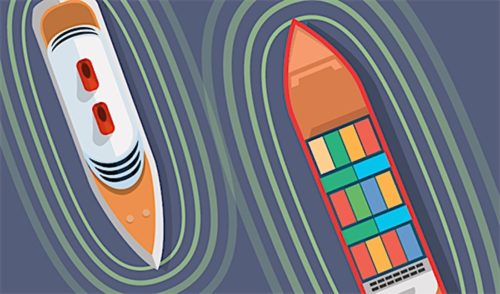The Institute of Marine Engineering, Science and Technology (IMarEST) has released a report on the human impact of autonomous ships in what it describes as a major piece of research.
For the report, IMarEST’s Maritime Autonomous Surface Ships Special Interest Group (MASS-SIG)) sought to gauge the potential impact of self-governing ships and plot out a new course for the shipping industry’s valued workforce.
One of the conclusions reached in the industry-wide investigation was that while autonomous technologies could create a competitive advantage for shipping companies, adoption will likely vary significantly between market segments.
An initial survey went on to inform a roundtable discussion, which in turn formed the basis of the report, titled “Autonomous Shipping – Putting the Human Back in the Headlines”.
While only one in six believe that industry is fully geared up to exploit the autonomous or remote operation of commercial vessels in the immediate future, the general sentiment was that such technologies will deliver benefits over the long term. However, somewhat ironically, the success of unmanned ships will hinge ultimately on accommodating the human-in-the-loop.
MASS-SIG’s investigation blended quantitative analysis in the form of an online survey with qualitative analysis of the results in a roundtable discussion held during Singapore Maritime Week in April, with the support of BMT Defence and Security and Braemar, as well as the British Chamber of Commerce (Singapore) and the Institution of Mechanical Engineers.
Senior figures from several high-profile shipping companies, two major classification societies, shipyards, regulators, technology providers, academia and research groups, as well as representatives from both Singapore’s Maritime & Port Authority and its navy took part in the conversation.
The survey sought opinion on the drivers for autonomous technology; the business case for automation and remote operation; amenability to such solutions by vessel segment; the relationship between man and machine, and by extension the human element; societal acceptance; and workforce succession planning.
“We had more than 600 responses to the survey, providing us a unique insight into current industry sentiment on an incipient – and often controversial – technology. This dataset was a keystone in the round-table, where industry leaders reflected on the results, and drew on their own experience and inject additional insight in order to validate and fortify the research,” commented Gordon Meadow, MASS-SIG Chair, IMarEST.
Interest in autonomous or remote vessel operation has arisen from the convergence of several technologies, including machine learning, new sensors, and improved connectivity at sea. Together, these systems could fundamentally transform the way ships operate in the future. But Meadow warns against a fixation on new hardware: “If fully realized, this technology will also transform the way the whole industry functions – and the way we will work with it.”
Building a better understanding of the impacts is necessary so as to measure the changes required in workforce capability, competency and training requirements so that those charged with managing and ensuring the safe operation of automated vessels are as effective as they can be.
The mapping of new skill-sets is a major part of MASS-SIG’s remit and the report produced highlights ways in which employers, organizations and regulators can work together to understand the skills required in the future and the training framework within which they will be taught.
Copyright Ships & Ports Ltd. Permission to use quotations from this article is granted subject to appropriate credit given to www.shipsandports.com.ng as the source.

